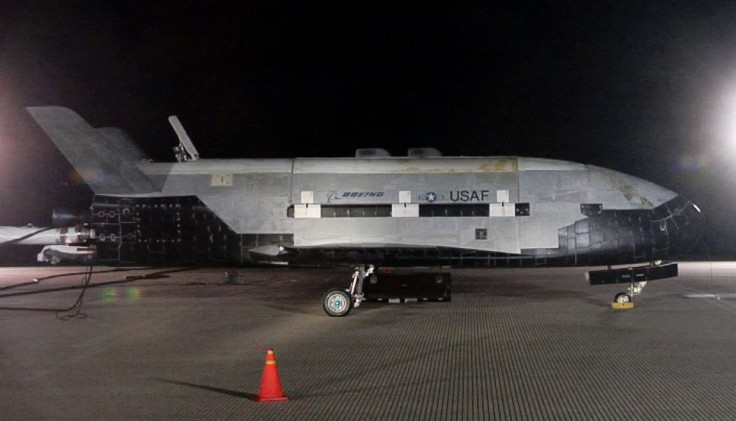Secret X-37B US Military Space Plane Spotted In Orbit By Amateur With Binoculars

It took little more than a pair of binoculars and some determination for a small group of hobbyists to discover the classified flight path of the X-37B U.S. space plane. The X-37B launched into space on May 20 atop an Atlas V rocket on a two-year secret mission, the fourth of its kind. But -- secrecy or not -- this X-37B is also the fourth to be identified by earthling observers, with one respected hobbyist seeing the craft in orbit.
The X-37B, known officially as Orbital Test Vehicle 4, rocketed into space carrying 100 scientific samples for experimental purposes as well as a LightSail, a solar-powered exploration vehicle that's being tested for the first time on this trip. That was pretty much everything the public knew about the flight or exactly what the X-37B, which resembles an unmanned version of the space shuttle, was supposed to be doing. Until now.
“OTV 4 entered the lowest initial altitude of the program,” Ted Molczan, a respected satellite watcher, told the news site Spaceflight Now in an article published Wednesday, adding that the still-orbiting satellite is flying closer to Earth than its predecessors did. “The ground track nearly repeats every two days. Frequently repeating ground tracks have been a common feature of the program. This could be an indication of a surveillance mission, or it may offer some operation advantage I have yet to figure out.”
Molczan, a private energy conservation consultant, is best known for identifying a secret spy satellite that the U.S. military intentionally destroyed not long after he pointed it out in 2006. When the New York Times profiled Molczan in 2008, it revealed that he observes satellites from the roof of his Toronto home, watching with binoculars and calculating its speed by recording the satellites' distance and time.
© Copyright IBTimes 2024. All rights reserved.











